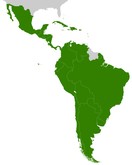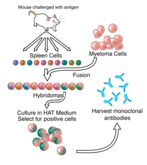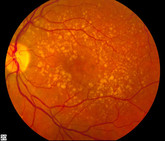Biosimilars/General
Key facts of biosimilars approval regulation in Brazil
This article provides a brief overview of the important aspects and an update on the regulatory pathways for approval of biological products in Brazil [1].
Canada’s Saskatchewan province introduces biosimilars switching policy
The Canadian province of Saskatchewan is the latest to introduce a biosimilars switching policy. As of October 2022, the province joins British Columbia (BC) [1], Quebec [2], Alberta, Ontario [3], New Brunswick [4], Nova Scotia [5], and the Northwest Territories [6] in introducing biosimilars switching policies.
Biosimilars of etanercept
Last update: 20 November 2020
Etanercept is a biological drug that treats autoimmune diseases by inhibiting tumour necrosis factor (TNF); a soluble inflammatory cytokine. Etanercept is indicated for the treatment of rheumatoid arthritis, juvenile idiopathic arthritis and psoriatic arthritis, plaque psoriasis and ankylosing spondylitis.
EMA calls for biosimilar interchangeability across the EU
The European Medicines Agency (EMA) and the Heads of Medicines Agencies (HMA) issued on 19 September 2022 a joint statement confirming that biosimilar medicines approved in the European Union (EU) are interchangeable with their reference medicine or with an equivalent biosimilar. This will allow more patients to have access to biological medicines necessary for treating diseases such as cancer, diabetes and rheumatic diseases.
Glosario de términos principales
Last update: 23 September 2022
Desde el lanzamiento del primer biosimilar en Europa en abril de 2006, se ha debatido de manera reiterada sobre el uso adecuado de la terminología relativa a los medicamentos biológicos, principalmente en inglés.
American Academy of Ophthalmology biosimilars guidance details
The American Academy of Ophthalmology (AAO) recognizes the potential societal value of biosimilars for improving care of patients with eye disease. Biosimilars should have sufficient research demonstrating their safety and effectiveness for treatment of eye disease. In January 2022, the AAO issued a policy statement on the biosimilars in ophthalmologic use [1].
Current status of monoclonal antibody biosimilars approved in Latin America
By the end of 2021, biosimilar antibodies of rituximab, trastuzumab, infliximab, adalimumab and bevacizumab were expected to be commercialized in Latin America with 25 different brand names.
Overview of monoclonal antibody biosimilars in Latin America
This article describes the current situation of biosimilar monoclonal antibodies in 10 countries of Latin America and their potential to reduce the cost of antibody therapies.
American Academy of Ophthalmology biosimilars position statement published
The American Academy of Ophthalmology issued a policy statement on the use of biosimilars in ophthalmic practice in January 2022 [1].
US prescription drug expenditure projection report
United States expenditure on pharmaceuticals was up in 2021, finds a report published in American Journal of Health-System Pharmacy [1]. It also highlights that increased uptake of biosimilars is allowing for healthcare savings yet overall spending on drugs in the US will increase by up to 6% in 2022.












